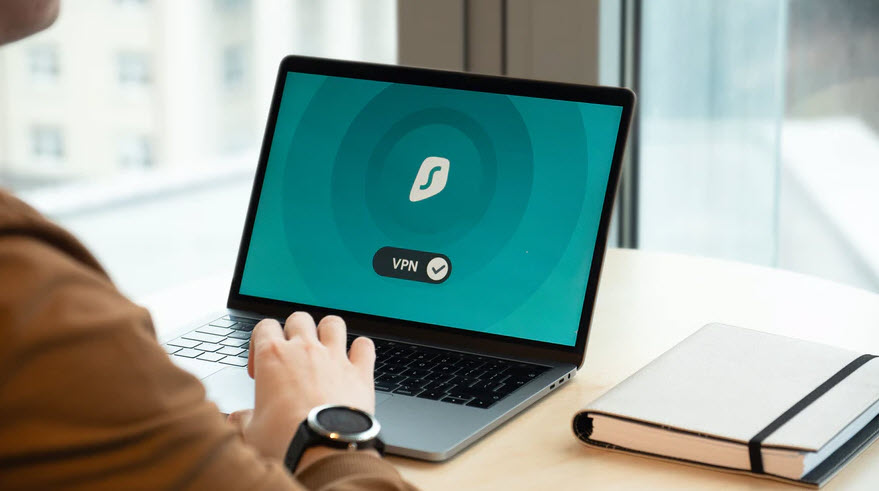
A VPN is a method or an application that you can use to encrypt your online communications through a public (or private) network. Basically, any online network you access while using a VPN with make your information, data and location secure and encrypted. The VPN system assures security of the data flowing offsite through the Internet by the use of Secure Socket Layer encryption.
VPN is an acronym standing for Virtual Private Network. Once a user makes a connection to the Internet, the VPN application kicks in and the connection is made to a server that is chosen by the user from another place in the world. Once connected, the host computer will be encrypted from the chosen area and there will be no information or data given off to the visited websites from the actual host network or computer.
Using a VPN can save you from many different hassles and geographical restrictions while searching through the pages of the Internet. Using a VPN can also be very good in blocking your computer from hackers and spammers. Remember though, it is not a virus protection software, and you can still obtain negative viruses from the Internet.
VPN is good for many things, including but not limited to getting past spamming and hackers who are out to get your information or place you on lists and hide your sensitive information like bank notes, passwords and work information. Most providers offer VPN services for ALL devices, including computers, laptops, tablets and smart phones. All major operating systems for these devices are secured and provided, including but not limited to Mac OS, Windows, Linux, iOS and Android. Although different companies offer service for different platforms, you can find a provider for any one!
The Linux VPN Client works with a VPN device to create a secure connection, called a tunnel, between your computer and a private network which uses Internet Key Exchange (IKE) and IP Security (IPSec) tunneling protocols to establish and manage the secure connection.
The steps used to establish a VPN connection can include:
- Negotiating tunnel parameters (addresses, algorithms, lifetime)
- Establishing VPN tunnels according to the parameters
- Authenticating users (from usernames, group names and passwords, and X.509 digital certificates)
- Establishing user access rights (hours of access, connection time, allowed destinations, allowed protocols)
- Managing security keys for encryption and decryption
- Authenticating, encrypting, and decrypting data through the tunnel
Don’t Forget:
- VPNs are private networks that encrypt data to and from your device.
- Not all VPNs are the same. Make sure you do your research before choosing a VPN.
- VPNs are legal but using them to geo-spoof to access licensed content may illegal.
- A VPN will protect your privacy and security when you use public WI-FI.
With the development of Internet and multimedia computer technology, the virtual classroom has adequate technical support. The application of virtual classroom changes the traditional mode of education, and makes a fundamental change in the teaching and learning methods.
VPNs are fundamentally of two basic types:
- Remote Access VPN: Remote Access VPN allows a client to link to a secure and private network therefore the client can access all its services and resources remotely. A link is established between the client and the private network through the Internet and the link is secure and private. Remote Access VPN is beneficial for both home users and business users. Suppose, if a worker of an organization is out of station, he/she may use a VPN to connect to the organization’s private network to remotely access the files, records and resources on the private network. VPN services are primarily used to bypass the regional restrictions on the web and access the blocked websites by either private users or home users. Clients mindful of Internet security likewise use VPN services to upgrade their Internet security and protection.
- Site to Site VPN: It is usually utilized in the massive companies. Businesses or corporations with workplaces spread across the globe may use Site-to-Site VPN to link the network of one workplace to the network of another workplace across the globe. Another terminology for Site-to-Site VPN is Router-to-Router VPN.
Conclusion
VPN is one of the widely used technologies in the world; nearly a quarter of the world’s population uses VPN to access the internet anonymously. To conclude between the services provided by free and paid VPN, it is really user dependent choice, as users are the ones to decide the purpose for use. For example, if you need to send a confidential mail using a mall’s Wi-Fi, a Free VPN might do the job, but if you wish to download a huge file from the internet anonymously then you would want to consider a Paid VPN. This paper explains the VPN technology, provides insights of the various protocols used in VPN and also lists the security issues related to VPN. This paper might help the user to choose their desired VPN provider and guide them to look for necessary features based on their requirements.








